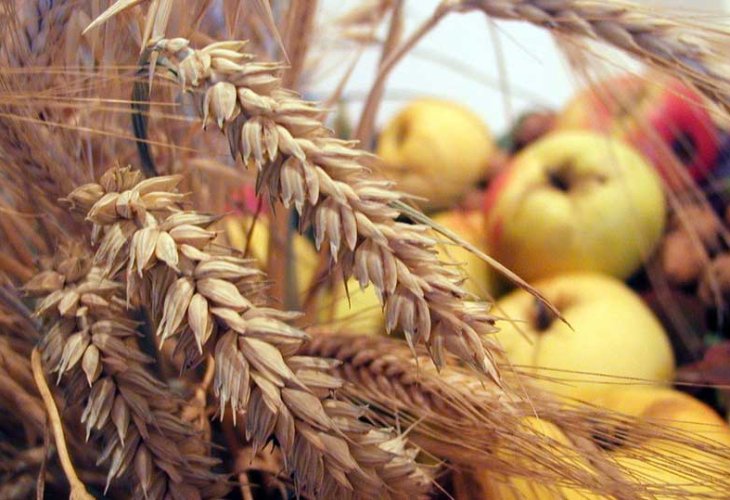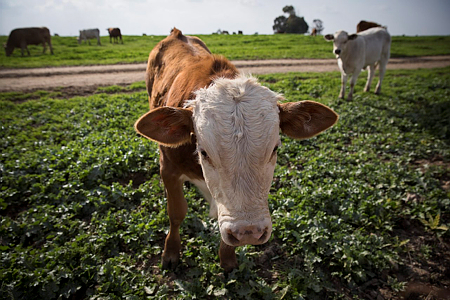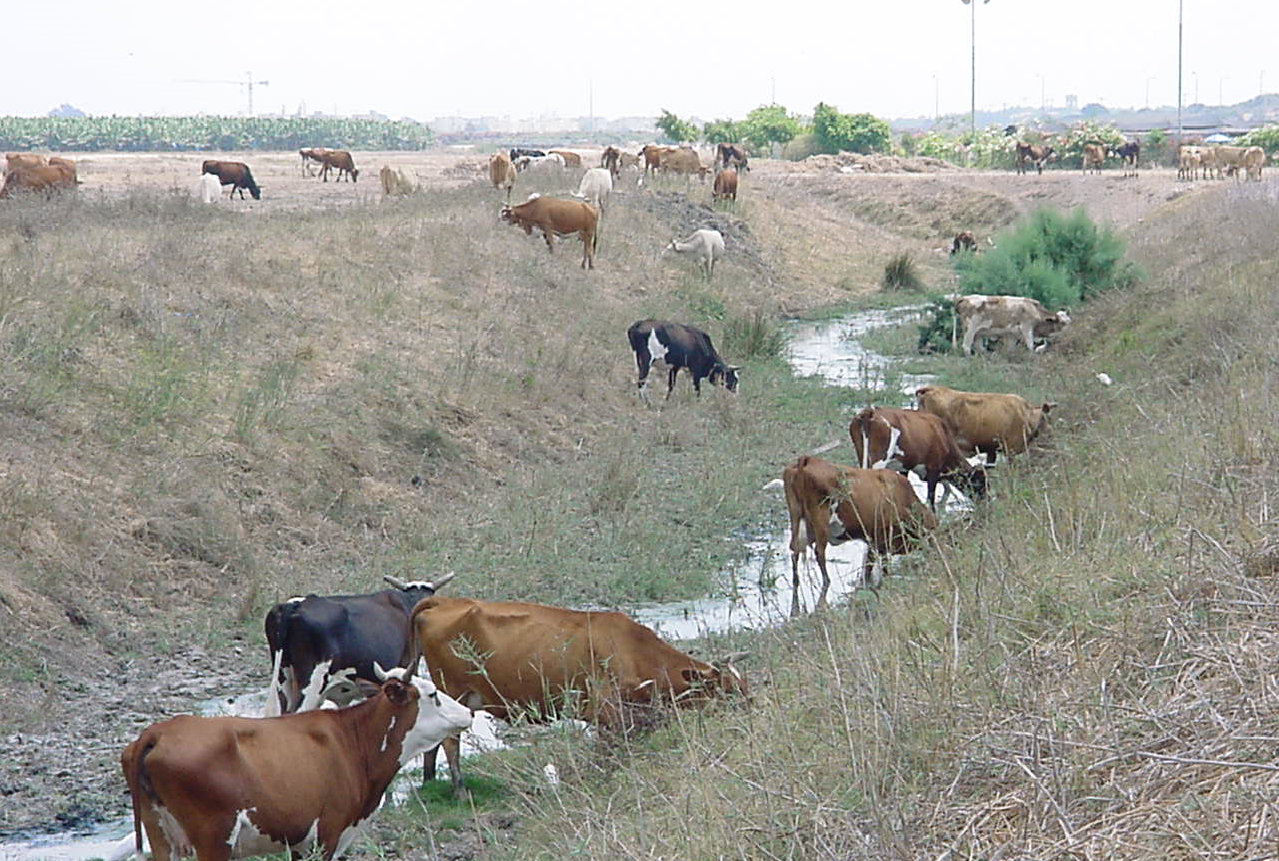Relief for Travelers in Northern Streams: "No Fear of Leptospirosis Presence"
637 travelers visited hospitals in summer 2018 due to leptospirosis concerns. 152 hospitalizations occurred, and many streams were closed. Now, with spring and an expected influx of travelers to the streams, authorities assure that there's no risk, inviting the public to enjoy hiking.
 You can hike in the northern streams (Photo: Flash 90)
You can hike in the northern streams (Photo: Flash 90)"We sample the stream waters, and there's no information about the presence of leptospirosis in the northern streams," says Alon Zask, Senior Deputy Director for Natural Resources at the Ministry of Environmental Protection, "everyone is invited to visit and enjoy." Alon mentions that in any case, precautionary measures are being taken—the veterinary service vaccinates herds suspected to be infected, and the ministry samples the waters.
Recently, the government approved the ministry's plan to remove cattle from stream channels in the Kinneret basin, with a budget of approximately 14 million shekels. This will reduce the risk of infectious diseases in the northern streams, exacerbated by the diminishing flow in the streams and natural systems in the north.
According to the ministry's data from summer 2018, following the leptospirosis outbreak—637 travelers went to hospitals for infection concerns; 152 were hospitalized due to leptospirosis; many streams were closed for hiking; and severe financial losses were incurred by northern tourism. Initial investigation revealed that the infected bathed in the waters of Meshushim, Yehudiya, Zavitan, Jilabun, Zaki, Daliot Estuary (Majrase), and Jordan Park. These streams were immediately closed by the Ministry of Health's order. Additionally, there was a sharp decline in visitor numbers to northern tourist sites due to water site closures and disease infection fears.
Low Stream Flows, High Temperature, and Wildlife Near Waters
Leptospirosis is a zoonotic infectious disease (transmitted from animals to humans), caused by bacteria. Without treatment, it may lead to severe symptoms like lung hemorrhage, meningitis, and even death. Key causes of outbreaks include low stream flows, high summer temperatures, and wild animals consuming stream water, excreting waste while in the waters.
The disease was first described by German doctor Adolf Weil in 1886, with the bacteria identified in 1915 by Japanese bacteriologists Ryokichi Inada and Yushi Idô. It is a globally spread disease, more common in tropical and sub-tropical climates and areas with poor sanitation. The World Health Organization estimates 873,000 annual cases worldwide. In Israel, the disease is mainly found in agricultural communities in the Galilee. The first case in the Land of Israel was recorded in 1942, and it has been a notifiable disease since 1951. From 1951 to 1987, leptospirosis outbreaks were characterized by recurring outbreaks amidst a downward trend in infection rates.
Based on your estimates, what is the likelihood of a leptospirosis outbreak this summer?
Alon: "A synergy of several factors led to last year's leptospirosis. This year, the likelihood is lower, but regardless, we are already taking action. There is a government decision that includes prevention and proactive actions. Besides, there is more flow in the streams, and more herds are vaccinated. We are already setting up water sites upstream, so cattle won't be near the streams." This action is supposed to divert pollution from cattle grazing and prevent it from reaching northern water sources. Alon: "Cattle tend to relieve themselves where they drink, through which the bacteria can be transmitted. The main point is creating a situation where most grazing activity is upstream, keeping waste away from the stream channel. This lowers the chance of infected cattle transmitting the bacteria through urine or feces in the water. Moreover, as stream flow is higher due to increased rainfall, the disease transmission risk is lower."
 Cows eating (Photo: Nati Shochat / Flash 90)
Cows eating (Photo: Nati Shochat / Flash 90)The disease has been known since the 1950s, even before. Alon: "Not sure large herds were previously in these areas. Besides, there is growing pressure on ecological systems with increasing regional development. Add to that rising temperatures, the fact that last winter was relatively dry and caused low stream flows. Conditions were ideal for a disease outbreak."
This Year, Everyone is Welcome to Visit and Enjoy
"We have no information about the disease presence, so everyone is welcome to visit and enjoy. Anyway, we take these measures: the veterinary service vaccinates herds infected or suspected of infection, and we constantly sample the waters and remove cattle from stream channels by setting up drinking sites outside them."
 (Photo: Ministry of Environmental Protection)
(Photo: Ministry of Environmental Protection)Is leptospirosis a result of Earth's changing climate?
"There is a connection. Physical conditions partly result from climate change. There is a combination of significant human pressure on ecosystems and the resilience of natural systems being affected by extreme temperatures and droughts.
As part of the government decision, an inter-ministerial team will be established to coordinate all pollution aspects in the northern streams, including representatives from the Ministry of Environmental Protection, Ministry of Health, Ministry of Agriculture, relevant local authorities, Kinneret Drainage Authority, Israel Nature and Parks Authority, and Water Authority. Additionally, sampling of streams and water sources in the north will be expanded, wildlife diseases monitored, and suspected leptospirosis herds vaccinated, with preventative herd vaccination.
"Thousands of cattle in the north live within water sources and defecate in them," said the ministry's Director General, Guy Samet, in a release about the government's plan approval. "This led to last year's sickness among hundreds. The Environmental Protection Ministry offers cost-effective activities to build long-term infrastructure, prevent illness, and return clean waters to nature."
"Israel is transitioning from a third world status, where cattle and sheep live in the same waters that humans drink and bathe in later," added Israel Nature and Parks Authority Director Shaul Goldstein, "Unfortunately, due to the delay in passing the decision, we won't be ready this summer, but Hashem gave us blessed rains that might have washed the streams, helping us pass the summer with low levels of contamination."

Alon Zask, Senior Deputy Director for Natural Resources (Photo: Ministry of Environmental Protection)
According to the Ministry of Environmental Protection, the proposed actions will improve the natural condition of Israel's northern water sources, increase ecosystem resilience, thereby reducing public health risks. Additionally, it will prevent possible damage to the tourism industry.
Minister of Environmental Protection, MK Ze'ev Elkin: "For years, our ministry has proposed a plan for tackling stream pollution, including leptospirosis—but unfortunately, this plan was delayed due to budget constraints. Its implementation is essential to protect northern streams and maintain them as a safe tourist destination for Israel's citizens."

